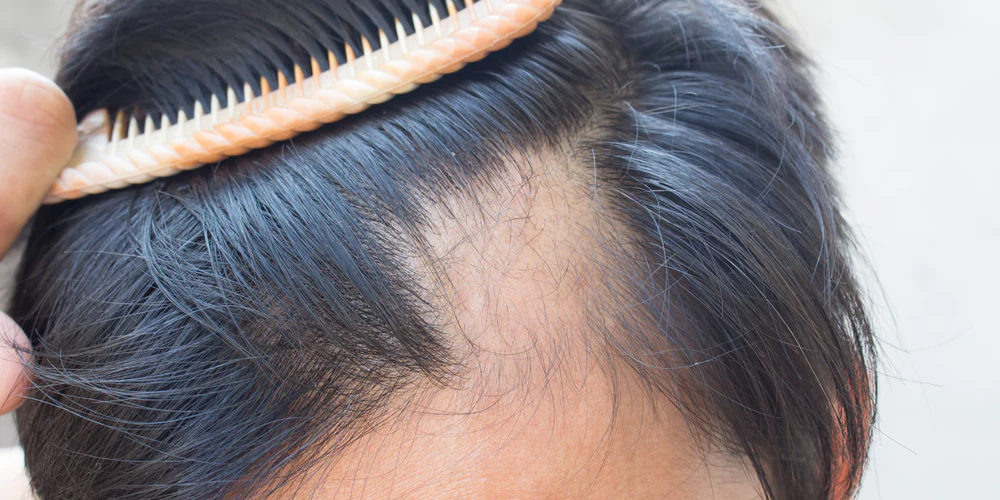Alopecia Areata
Alopecia areata is a common autoimmune condition affecting millions worldwide, leading to sudden hair loss in localized or widespread areas. Zafeerah Skin Clinic is renowned for its Alopecia treatment. We use the most advanced technologies to help you overcome Alopecia. We also tailor the treatment plans according to your needs and comfort. Let us discuss about alopecia areata, including its symptoms, when to seek medical attention, causes, available treatments, risk factors, complications, prevention strategies, and frequently asked questions.
Symptoms of Hair Loss
- The hallmark symptom of alopecia areata is sudden hair loss in small, circular patches on the scalp, eyelashes, eyebrows, or other body hair.
- Complete baldness (alopecia totalis) or loss of all body hair (alopecia universalis) are also extensive symptoms of Alopecia.
When to See a Doctor
It's important to consult a dermatologist if you experience sudden or unexplained hair loss, especially if it occurs in patches or is accompanied by other symptoms like itching, redness, or discomfort.
Causes of Alopecia Areata
Alopecia areata is believed to be caused by an autoimmune response, where the body's immune system attacks hair follicles, leading to hair loss. While the exact cause still remains unclear, genetic factors, environmental triggers, and immune system dysregulation are thought to play a role in its development.
Non-Surgical Inventions for Alopecia Areata
- Corticosteroid creams or solutions applied to the affected areas can help minimize inflammation and promote hair regrowth.
- Corticosteroid injections
- Minoxidil (Rogaine)
Surgical Inventions for Alopecia Areata
In cases where non-surgical treatments are ineffective, surgical interventions may be considered:
- Hair Transplantation: This technique involves transplanting hair follicles from donor areas to the bald patches on the scalp.
- Scalp Micropigmentation: A non-invasive procedure where pigments are tattooed onto the scalp to create the appearance of hair follicles and density.
Risk Factors and Complications
Risk factors for alopecia areata include a family history of the condition, other autoimmune disorders, and a history of allergies or atopic conditions. Complications may include psychological distress, self-esteem issues, and emotional impact due to changes in appearance.
Prevention Strategies
- Stress can cause autoimmune conditions, so practising stress-reducing techniques like meditation, yoga, or counselling can be beneficial.
- Eating a balanced diet, exercising regularly, and maintaining overall wellness can support immune system function.
- Identify and avoid dangerous triggers such as allergens or environmental factors that may worsen alopecia areata.
FAQs about Alopecia Areata
No, alopecia areata is not contagious and cannot be passed from person to person or through contact with affected individuals.
While there is currently no complete cure for alopecia areata, treatments can help manage the condition and promote hair regrowth in many cases.
Alopecia areata can affect any hair-bearing area of the body, including the scalp, eyebrows, beard, and body hair.
In some cases, alopecia areata may resolve spontaneously without treatment, especially for mild or localized forms of the condition. However, treatment is often recommended to promote faster and more consistent hair regrowth.
Conclusion
Alopecia areata is a complicated autoimmune condition that can have drastic effects on physical appearance and emotional well-being. By understanding its symptoms, causes, available treatments, and preventive measures, you can manage alopecia areata. If you or someone you know is experiencing hair loss due to alopecia areata, seeking professional medical advice is crucial for proper diagnosis and treatment planning.


